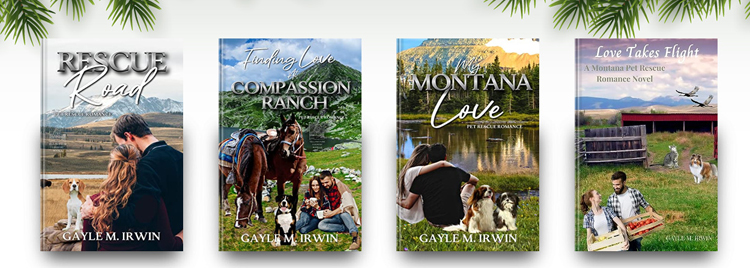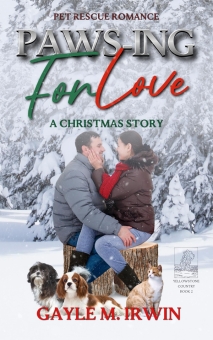Christmas Hope or Heartbreak?
Colter, Montana waltzes in brilliance during winter, with glistening snow on mountain peaks and diamond-like frost on trees and rivers. Romance and dreams flourish in this Christmas card setting. However, news of friends missing after a raging blizzard and a later accident and subsequent illness disrupt the lives of Rhiann and Levi Butler, who operate a horse ranch and pet rescue sanctuary. Will the joy of Christmas be silenced or strengthened after a pair of stray animals take refuge at the Butlers' property? Can a cat named Mina and a Corgi christened Maverick deliver hope or will they add more heartache for a couple and community struggling with fear and sorrow?
Family saga, rescued animals, love interests, wildlife and majestic Montana scenery, all woven into a sweet romance story.
Eleanor Davis inherits the family farm and plans new projects to keep the property solvant. Meeting Nathan Ford, who knew and helped her grandfather, brings new light to her life and excitement for what may lie ahead. However, secrets they each hold could destroy their fledgling love. A sweet, contemporary romance about forgiveness and healing with elements of pet rescue and family saga.
Eleanor Davis inherits the family farm and plans new projects to keep the property solvant. Meeting Nathan Ford, who knew and helped her grandfather, brings new light to her life and excitement for what may lie ahead. However, secrets they each hold could destroy their fledgling love. A sweet, contemporary romance about forgiveness and healing with elements of pet rescue and family saga.









_w_h340/Ebook%20Cover_Love%20Takes%20Flight4_veggies_LARGER_JPG%20(1600%20×%202400%20px)_08060851.jpg)
